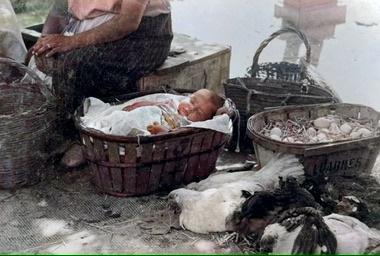How do feral domestic goats affect plant diversity in Mallorca's mountainous regions?
Similar Topics
feral domestic goats
plant diversity mallorca
mountainous regions goats
native vegetation grazing
forest regeneration mallorca
mediterranean flora impact
goat population control
mallorca ecosystem conservation
Feral domestic goats in Mallorca's mountainous regions have a significant impact on the local plant diversity. These goats, descendants of once-domesticated animals now living wild, graze extensively on a wide range of native vegetation. Their feeding habits predominantly affect shrubs, young trees, and herbaceous plants, which can lead to a reduction in undergrowth density and an overall shift in the composition of plant communities. Over time, this intense grazing pressure can cause declines in certain plant species that are less resilient or slower to regenerate, thereby altering the balance within these natural ecosystems.
The mountainous terrain of Mallorca, characterized by its Mediterranean climate and unique flora, makes these areas particularly vulnerable to such disturbances. Because the goats prefer tender shoots and seedlings, their presence often hampers forest regeneration, limiting the establishment of new plants and trees. This not only affects botanical diversity but also has cascading effects on wildlife dependent on these plants for food and habitat. Furthermore, the goats’ selective grazing can promote the dominance of hardy, less palatable plants, which may crowd out rarer native species, further decreasing biodiversity.
Efforts to manage feral goat populations have been important in protecting Mallorca’s delicate mountain ecosystems. Strategies involve controlled culling, fencing sensitive areas, and restoring vegetation to encourage the recovery of native plant species. Understanding the ecological role and impact of feral goats allows conservationists and local authorities to balance the preservation of natural landscapes with sustainable tourism. For visitors exploring Mallorca’s mountainous regions, recognizing the ongoing challenges posed by these animals adds depth to the experience and appreciation of the island’s unique environmental heritage.
The mountainous terrain of Mallorca, characterized by its Mediterranean climate and unique flora, makes these areas particularly vulnerable to such disturbances. Because the goats prefer tender shoots and seedlings, their presence often hampers forest regeneration, limiting the establishment of new plants and trees. This not only affects botanical diversity but also has cascading effects on wildlife dependent on these plants for food and habitat. Furthermore, the goats’ selective grazing can promote the dominance of hardy, less palatable plants, which may crowd out rarer native species, further decreasing biodiversity.
Efforts to manage feral goat populations have been important in protecting Mallorca’s delicate mountain ecosystems. Strategies involve controlled culling, fencing sensitive areas, and restoring vegetation to encourage the recovery of native plant species. Understanding the ecological role and impact of feral goats allows conservationists and local authorities to balance the preservation of natural landscapes with sustainable tourism. For visitors exploring Mallorca’s mountainous regions, recognizing the ongoing challenges posed by these animals adds depth to the experience and appreciation of the island’s unique environmental heritage.
🧩 Related Questions
Related Question
How can travelers distinguish between different olive oil varieties when shopping in Mallorca?
Related Question
What role does organic and health-food trends play in the rising demand for Mallorca’s carob products?
Related Question
How are episcopal vicars involved in the preparation and celebration of sacraments in Mallorca?
